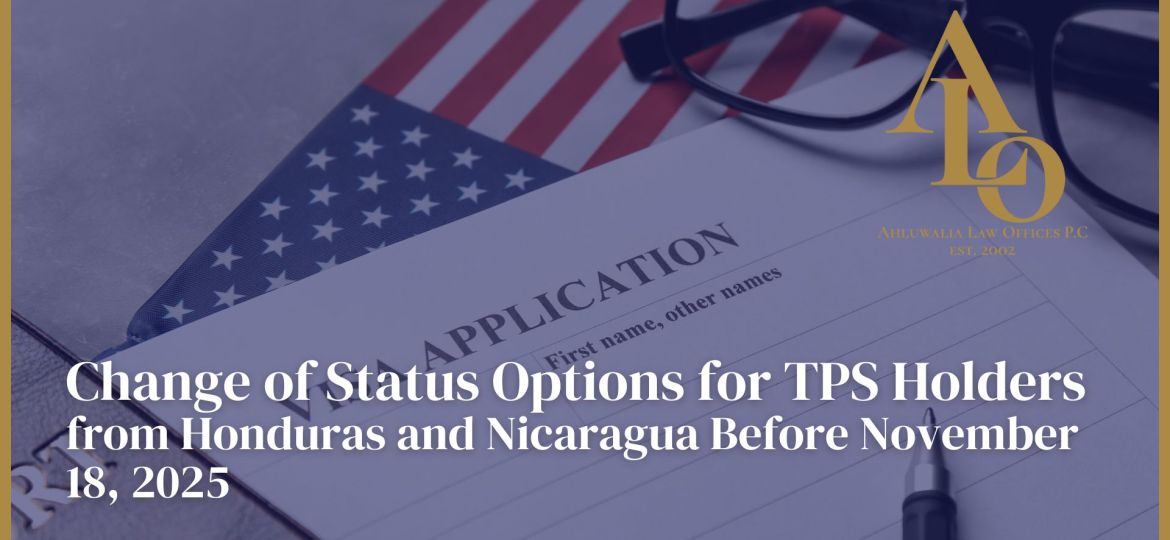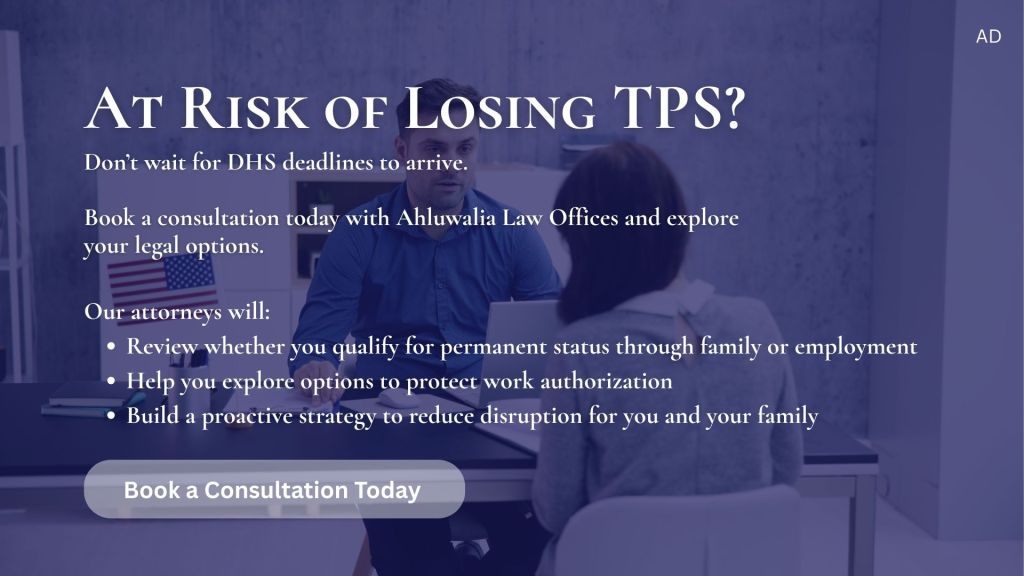
The previous court order, issued on July 31st, 2025 that granted extension to Temporary Protected Status (TPS) for nationals of Nepal, Venezuela, Honduras and Nicaragua has been stayed by the 9th Circuit Court of Appeals on 20th August, 2025.
This extension, was granted by the U.S. District Court for the Northern District of California in National TPS Alliance v. Noem, temporarily delays the Department of Homeland Security’s (DHS) termination of TPS for these countries.
While this ruling preserves TPS benefits for now, DHS has signaled its intent to challenge it. TPS holders should use this limited window to explore other lawful pathways to remain in the United States after November 18, 2025.
Why You Should Act Now
The current stay is temporary. If TPS ends on November 18, those without another lawful immigration status may lose work authorization and become subject to removal. Applying for a change of status before the TPS expiration date can help secure your legal presence and work eligibility in the U.S.
Change of Status Pathways to Consider
1. F-1 Student Visa
If you intend to study full-time at an accredited U.S. institution:
- You must be accepted into a SEVP-certified school.
- Demonstrate nonimmigrant intent and financial ability to cover tuition and living expenses.
- File Form I-539 to change status before TPS ends.
Tip: Transitioning to F-1 can preserve your lawful stay while gaining education and work opportunities (such as Optional Practical Training).
2. B-2 Visitor Visa
For those seeking a short-term stay:
- Must show intent for a temporary visit (tourism, visiting family, medical care).
- Requires strong evidence of ties to your home country.
- Approval is discretionary, and maintaining lawful status during processing is essential.
3. Employment-Based Nonimmigrant Visas
If you have a qualifying U.S. employer willing to sponsor you:
- H-1B Specialty Occupation Visa – Requires a bachelor’s degree or higher in a specific field and employer sponsorship.
- O-1 Extraordinary Ability Visa – For individuals with demonstrated national or international recognition in their field.
- L-1 Intracompany Transfer Visa – If you work for a multinational company with a qualifying U.S. branch.
4. Family-Based Immigration
If you have close family who are U.S. citizens or lawful permanent residents:
- Immediate Relatives (spouse, unmarried child under 21, or parent if you are under 21) can petition for your green card.
- Filing both Form I-130 and Form I-485 (if eligible for adjustment) before TPS ends may allow you to remain while the case is pending.
5. Humanitarian Options
If returning to your country presents danger:
- Asylum – Requires proof of a well-founded fear of persecution on account of race, religion, nationality, political opinion, or membership in a particular social group.
- Withholding of Removal or Convention Against Torture (CAT) Protections – May apply in cases of severe risk upon return.
Timing Is Critical
To change status, you must file your application while still in lawful TPS. Waiting until after TPS expires could limit your options or require you to depart the U.S. to apply from abroad.
Because USCIS processing times vary, early filing increases your chances of securing another status before the November deadline.
Next Steps
TPS holders from Honduras and Nicaragua have a limited window until November 18, 2025, to pursue other legal pathways.
- Assess your eligibility for one or more change of status categories.
- Gather required documents such as proof of continuous residence, educational acceptance letters, job offers, or family relationship evidence.
- File the appropriate USCIS form(s) before TPS ends.
- Consult an immigration attorney to ensure proper strategy and compliance with USCIS requirements.


